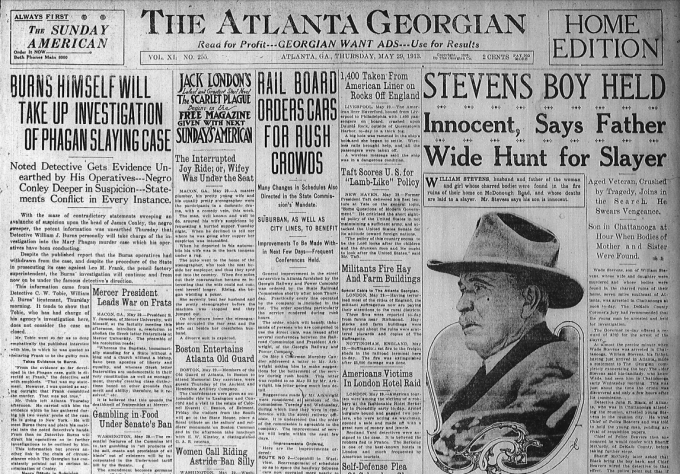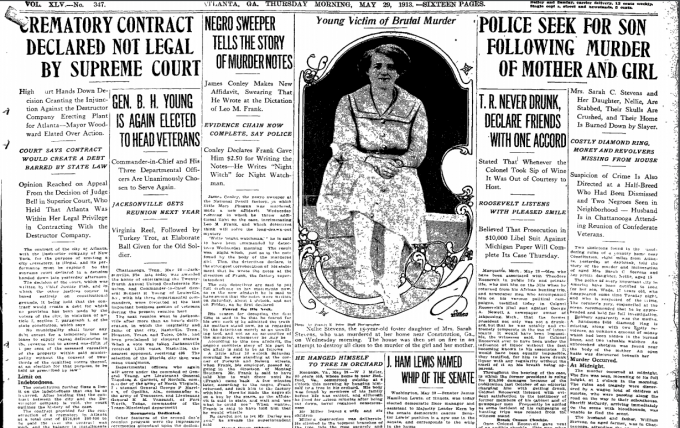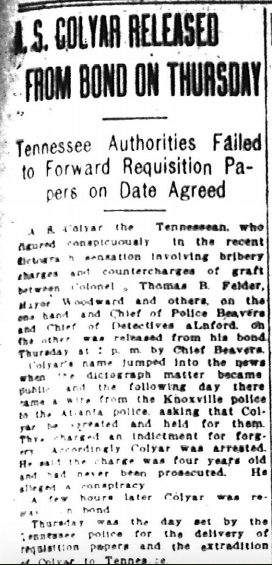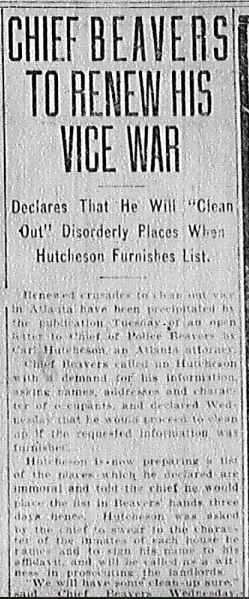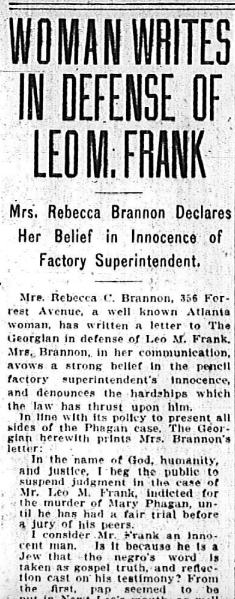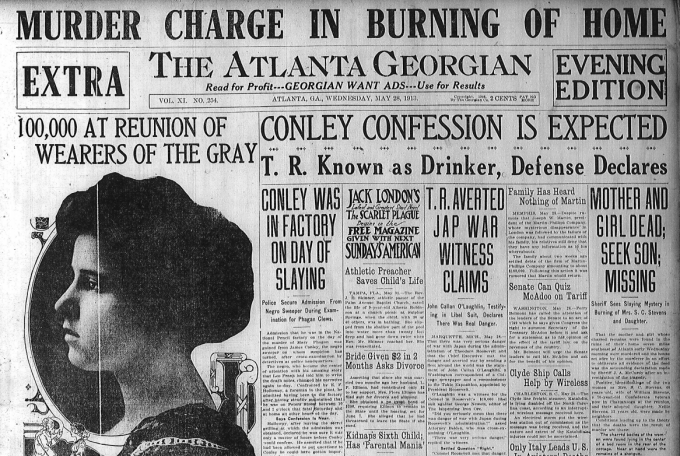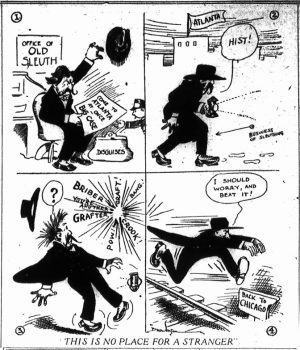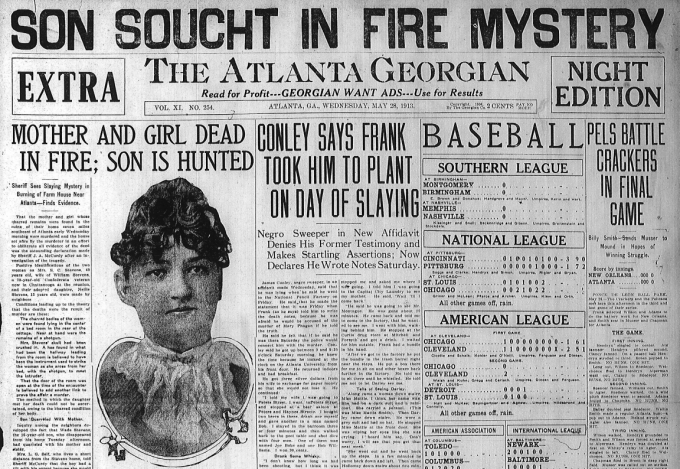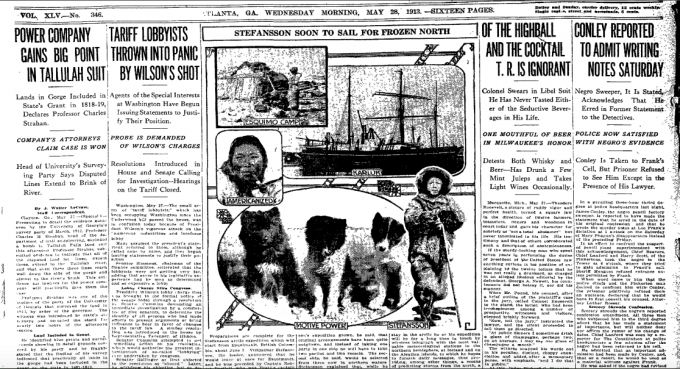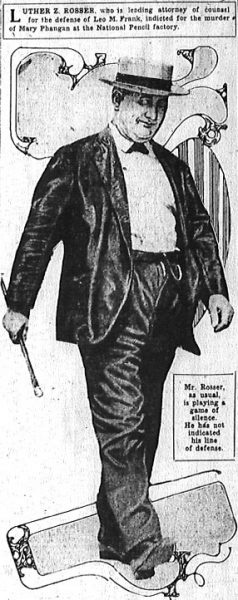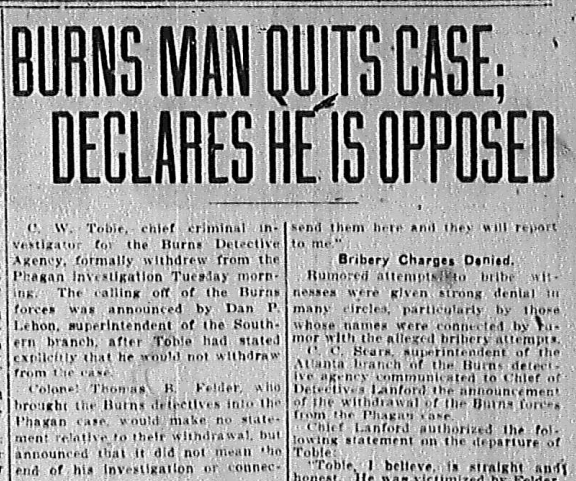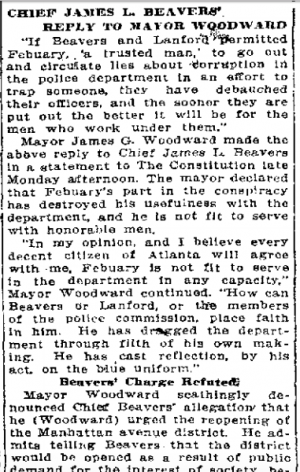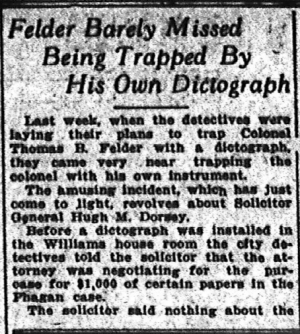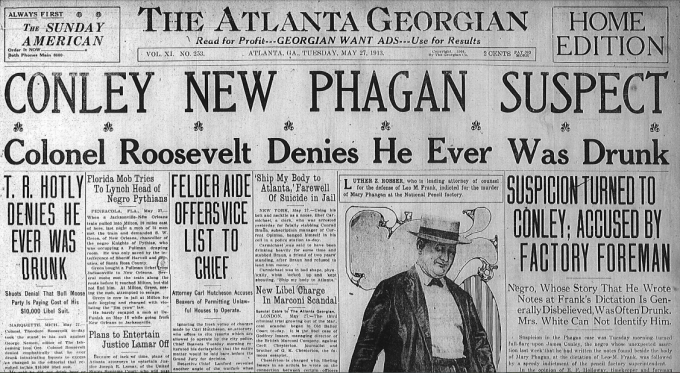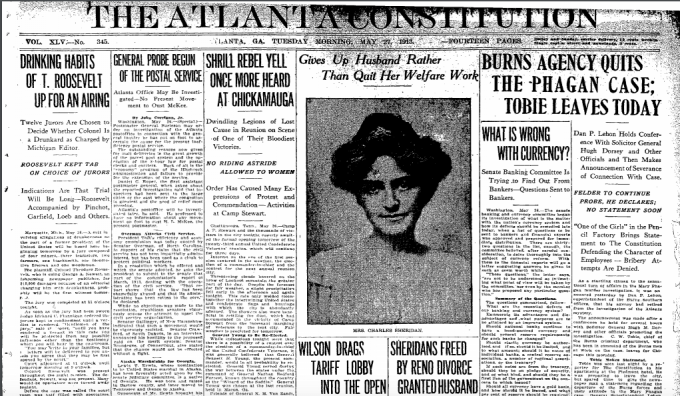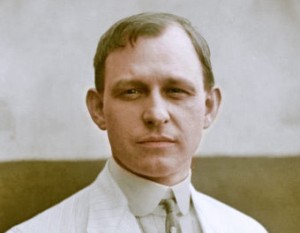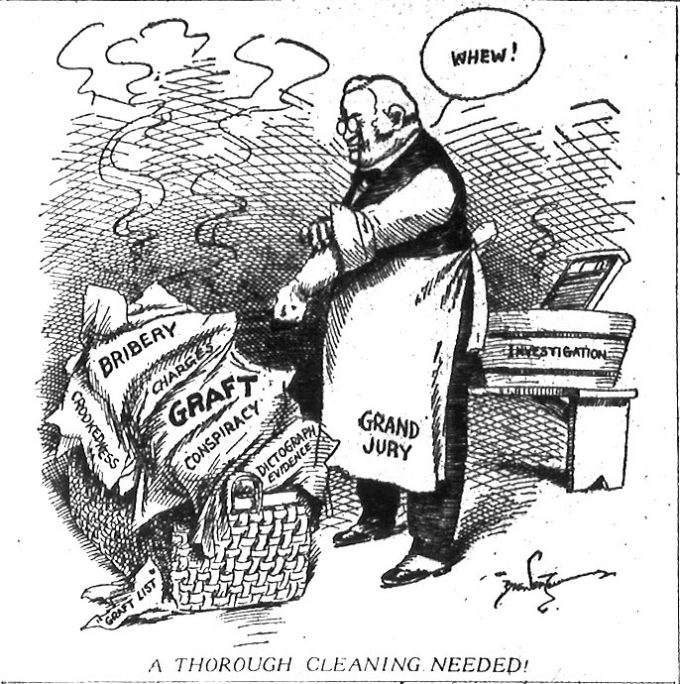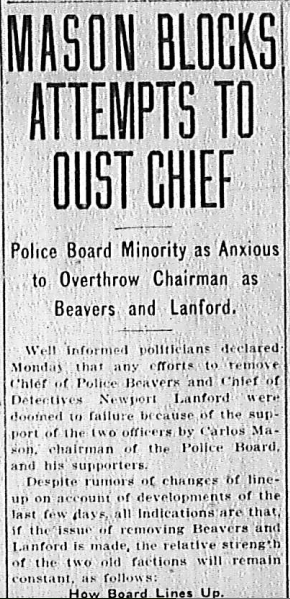Another in our series of new transcriptions of contemporary articles on the Leo Frank case.
Atlanta Georgian
Thursday, May 29th, 1913
All Evidence Gathered by His Operatives Sent to the Noted Detective.
James Conley, the negro sweeper at the National Pencil Factory who has turned suspicion on himself with a maze of contradictory statements, was put through a gruelling third degree examination at police headquarters this afternoon. Pinkerton Detective Harry Scott said as the grilling began before Chief Beavers and Chief Lanford that he expected to glean important information. Scott had interviewed factory employees and was convinced that there were many things to be cleared up before the negro’s second affidavit, on which the police rely so much, could be accepted.
With the maze of contradictory statements sweeping an avalanche of suspicion upon the head of James Conley, the negro sweeper, the potent information was unearthed Thursday that Detective William J. Burns personally will take charge of the investigation into the Mary Phagan murder case which his operatives have been conducting.
Despite the published report that Burns operatives had withdrawn from the case, and despite the procedure of the State in prosecuting its case against Leo M. Frank, the pencil factory superintendent, the Burns investigation will continue and from now on be under the famous detective’s direction.
This information came from Detective C. W. Tobie, William J. Burns’ lieutenant, Thursday morning. It tends to show that Tobie, who has had charge of his agency’s investigation here, does not consider the case as closed.
Mr. Tobie went so far as to deny emphatically the published interview with him, in which he was quoted as declaring Frank to be the guilty man. Continue Reading →

